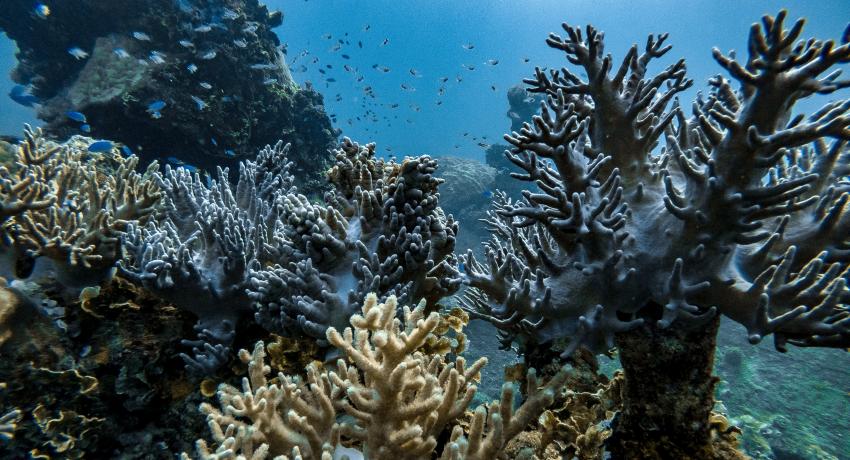According to a new study published in Nature, Arctic Ocean acidification over the 21st century, mainly caused by the uptake of anthropogenic CO2 by the ocean, is projected to be greater than previously estimated. Ocean acidification threatens the life of calcifying organisms, such as corals and shellfish, and can have serious consequences for the entire food chain.
The ocean absorbs around a quarter of atmospheric CO2 released by anthropogenic sources. While this uptake mitigates global warming, it also disrupts the seawater chemistry. The additional CO2 in the ocean reduces its pH and the amount of calcium carbonate minerals, an effect known as ocean acidification. This reduction in calcium carbonate minerals negatively affects the growth and survival rates of calcifying marine organisms, such as corals and shellfish, which depend on these minerals to build their skeletons and shells.
Ocean acidification will affect different parts of the ocean at different extents. The low water temperatures in the Arctic Ocean make CO2 more soluble, thus this ocean is one of the most vulnerable regions with respect to acidification.
A new Nature study published by 4C researchers showed that the projected Arctic Ocean acidification at the end of the 21st century has been on average underestimated by climate models. The scientists from the University of Bern (Switzerland) and École Normale Supérieure (France) found that the Arctic Ocean will likely take up 20% more CO2 over the 21st century than previously estimated. “This leads to substantially enhanced ocean acidification, particularly between 200 and 1000 meters”, as lead author Jens Terhaar explained.
Uncertainty in model projections
The projections of climate models differ largely in the extent of Arctic Ocean acidification likely to be seen by the end of the 21st century. The 4C-funded study found a strong relation between present-day maximum sea surface density and future ocean acidification: Models with denser surface water form more deep water, which then leads to a larger transport of CO2 to the ocean’s interior and stronger ocean acidification.
By exploiting this relationship with observations of sea surface density, the researchers corrected the estimated future Arctic Ocean acidification for model biases and reduced the associated uncertainty . They also found that the likelihood of calcite undersaturation increases strongly under the high-emissions IPCC scenario (RCP8.5).
Consequences for marine organisms
The higher ocean acidification in Arctic waters in the 21st century will likely cause the calcium carbonate skeletons and shells of marine organisms to become unstable and begin to dissolve. “Our results suggest that it will be more difficult for Arctic organisms to adapt to ocean acidification than previously expected”, as stated by co-author Lester Kwiatkowski. The decreased populations of calcifying organisms are likely to negatively affect the survival of other dependent species and ecologically important fish.
Study: Jens Terhaar, Lester Kwiatkowski, and Bopp L. (2020). Emergent constraint on Arctic Ocean acidification in the twenty-first century. Nature 582 (7812): 379. DOI: 10.1038/s41586-020-2360-3

